Does Alcohol Break Down into Sugar?
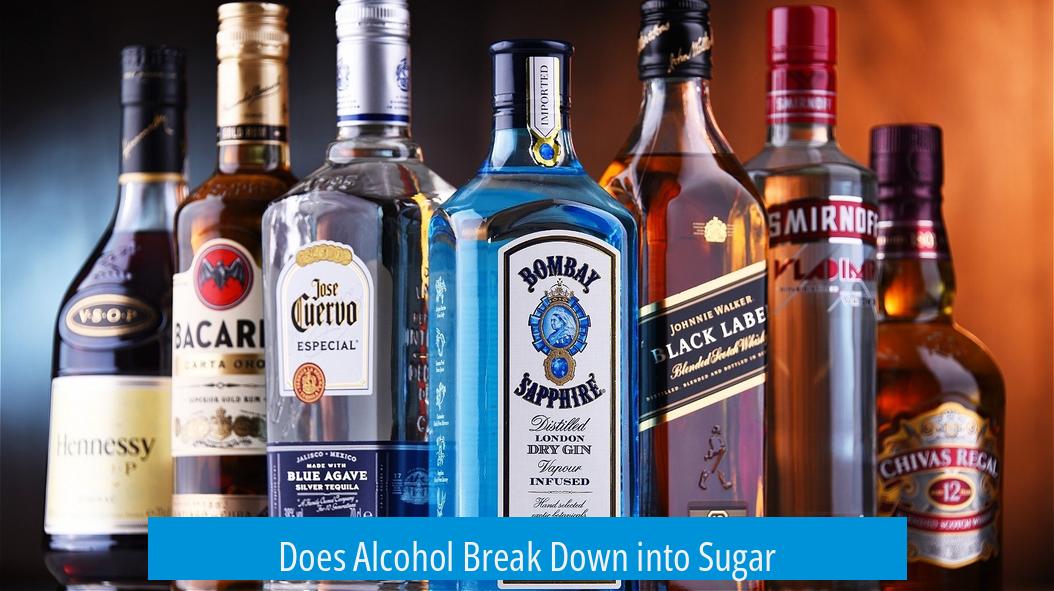
Alcohol does not break down into sugar during metabolism. Instead, ethanol—the main type of alcohol in drinks—metabolizes into acetaldehyde and then acetic acid. At no stage does this process produce sugar or convert alcohol into sugar in the human body.
How Alcohol is Metabolized
The body processes ethanol through a defined pathway:
- Ethanol converts to acetaldehyde via alcohol dehydrogenase enzymes.
- Acetaldehyde then transforms into acetic acid by acetaldehyde dehydrogenase.
- Acetic acid enters metabolism as acetyl-CoA, which feeds into the tricarboxylic acid (TCA) cycle.
This final conversion allows alcohol to serve as an energy source but does not involve sugar formation.
Common Misconceptions About Alcohol and Sugar
There is often confusion linking alcohol metabolism with sugar. Some believe alcohol breaks down into sugar, but this is inaccurate. Actually, sugar can be fermented into alcohol during brewing or fermentation processes, but not the reverse in human metabolism.
Sugar molecules contain six carbons, whereas ethanol has only two carbons, making their metabolic pathways distinct and non-reversible.
Relationship Between Alcohol and Sugar Metabolism
Though alcohol does not turn into sugar, it shares metabolic pathways producing acetyl-CoA, a key energy precursor. However, alcohol metabolism affects the liver differently:
- High NADH levels from alcohol metabolism promote fatty acid synthesis.
- Accumulated fats can cause fatty liver disease and impair liver function.
- Impaired liver function leads to elevated ammonia levels, affecting brain health.
Sugar Content in Alcoholic Drinks
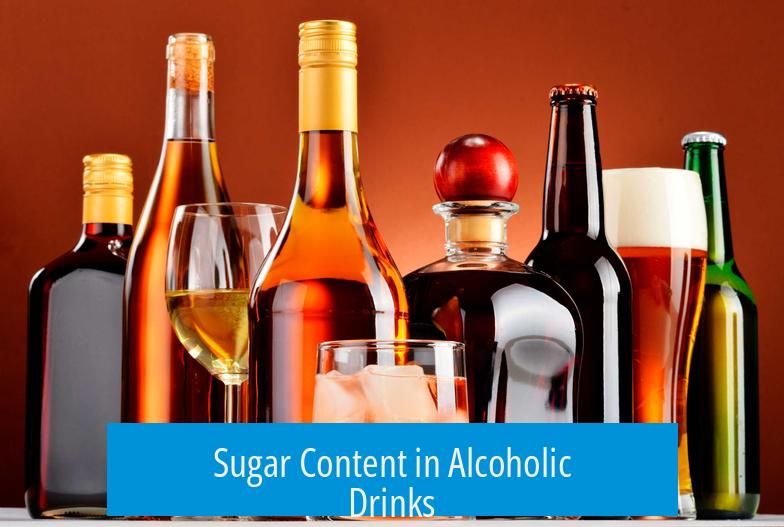
Some alcoholic beverages contain sugar or carbohydrates:
- Beer has starches that break down into sugars during digestion.
- Mixed drinks and certain wines often include added sugars.
These sugars come from the drink ingredients, not from the breakdown of ethanol.
Summary
- Alcohol breaks down into acetaldehyde and acetic acid, not sugar.
- Alcohol and sugar metabolism intersect at acetyl-CoA but follow separate pathways.
- Fermentation can turn sugar into alcohol, but alcohol does not revert to sugar in the body.
- Alcohol metabolism affects liver function and fat synthesis differently from sugar metabolism.
- Alcoholic drinks may contain sugars, but these are external additives, not metabolites of ethanol.
Does Alcohol Break Down Into Sugar? Debunking the Myth
Let’s address the burning question right off the bat: No, alcohol does not break down into sugar. This misconception floats around like an uninvited party guest, but the truth is quite different. Your body processes alcohol in a unique way, and sugar does not enter the picture at any stage. Curious how this metabolic maze works? Read on for a clear, no-nonsense explanation.
Alcohol, or more precisely ethanol, is a molecule with just two carbon atoms. Sugars, like glucose, have six carbons. This significant difference means ethanol can’t simply turn into sugar inside your body. So, if you ever hear someone say alcohol “breaks down into sugar,” you can politely nod and know they’re mistaken.
How Does Alcohol Metabolize Then?
The journey of alcohol in your body is pretty straightforward. Once consumed, your liver sets to work converting ethanol first into acetaldehyde, a sharp-smelling compound that’s quite toxic. Then, acetaldehyde becomes acetic acid, which eventually transforms into acetyl-CoA. This all might sound like a chemistry lesson, but it’s fascinating because acetyl-CoA is a powerhouse for energy production.
This acetyl-CoA then feeds into what’s called the TCA cycle (or Krebs cycle), a central hub where your body extracts energy from different nutrients. What’s interesting is that while sugar and alcohol metabolism both funnel nutrients into this cycle, alcohol itself never turns into sugar—it merely shares part of the energy-producing pathway.
Why Do People Confuse Sugar and Alcohol?
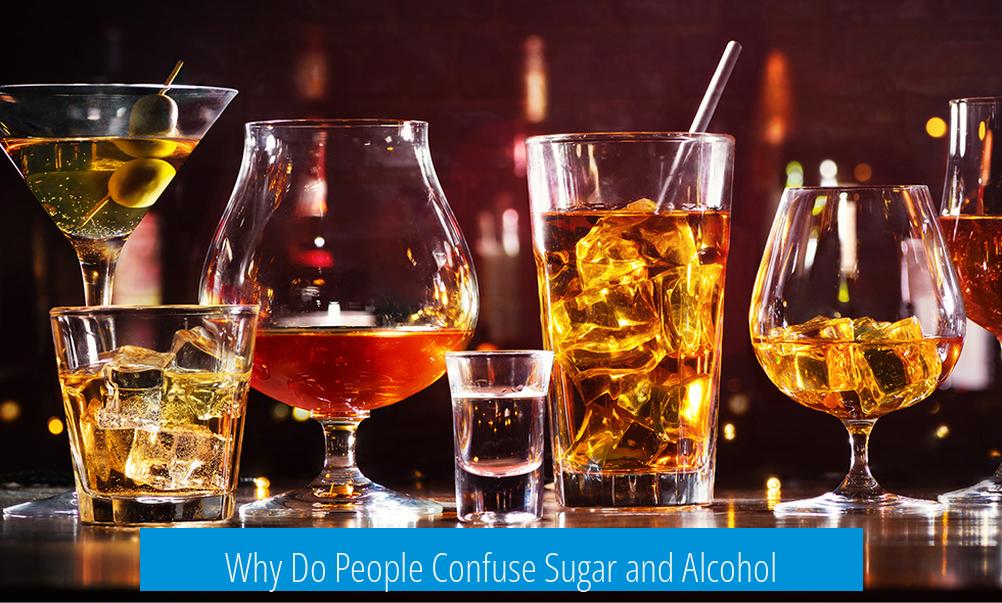
Funny thing: The confusion often goes the other way. People sometimes imagine sugar turning into alcohol, which isn’t entirely wrong but also not happening inside us humans. In brewing and fermentation, sugar is converted into ethanol by yeast enzymes like invertase and zymase. But hold your horses—this happens outside your body, not inside. So the story might get tangled in translation between biology and brewing science, leading people to think alcohol breaks down into sugar.
It’s even a story passed down in families. One person said their dad mentioned that alcohol turns into sugar, and voilà—myth perpetuated. Spoiler: dad was wrong. Don’t blame him; metabolism is complex and quirky.
The Impact: Why Knowing the Difference Matters
Alcohol certainly packs calories—about 7 calories per gram. That’s a significant energy hit, almost as much as pure fat. Although it doesn’t become sugar, the way alcohol metabolism works affects your liver and overall metabolism in specific ways, some not so pleasant.
When your liver breaks down alcohol, it produces plenty of NADH, a molecule critical to energy reactions. But an excess of NADH encourages your liver to crank out fatty acids. These fats team up with glycerol to form triglycerides—hello, fatty liver disease. So, even if alcohol doesn’t become sugar, it nudges your body toward storing fat, which is definitely a concern.
Moreover, alcohol impairs the liver’s ability to perform its usual detox jobs. Protein metabolism generates ammonia, which the liver normally converts to urea for safe elimination. With heavy drinking, this process stalls, and ammonia builds up. The result? Brain poisoning that triggers symptoms like delirium tremens—shakes and confusion—serious stuff.
What About Alcoholic Drinks and Sugar Content?
Here’s a twist: Many alcoholic drinks do contain sugars or carbohydrates, though not from alcohol itself. Beer, for instance, contains starches, which the body breaks down into simple sugars. Certain cocktails and sweet wines also come loaded with sugars from added ingredients.
This means while alcohol doesn’t become sugar, drinking certain beverages can increase your sugar intake. It might explain why people sometimes feel that sugar and alcohol go hand-in-hand. But remember, the sugar in your drink and the alcohol you drink are metabolized separately.
Putting It All Together
Alcohol metabolism is like a complex puzzle that might mislead you into thinking sugar is involved, but it’s not. Your liver converts ethanol into acetaldehyde and then acetic acid, moving swiftly toward energy production without crafting any sugars. Yet, alcohol still plays its part in your metabolism, influencing fat storage and liver function.
So, next time you ponder whether a drink of whiskey adds to your sugar intake, rest easy. The sugar in your cocktail is from the mixer, not the ethanol. If your liver could talk, it might say, “Please, no more tricks—just some water!”
Practical Tips for Your Metabolic Health
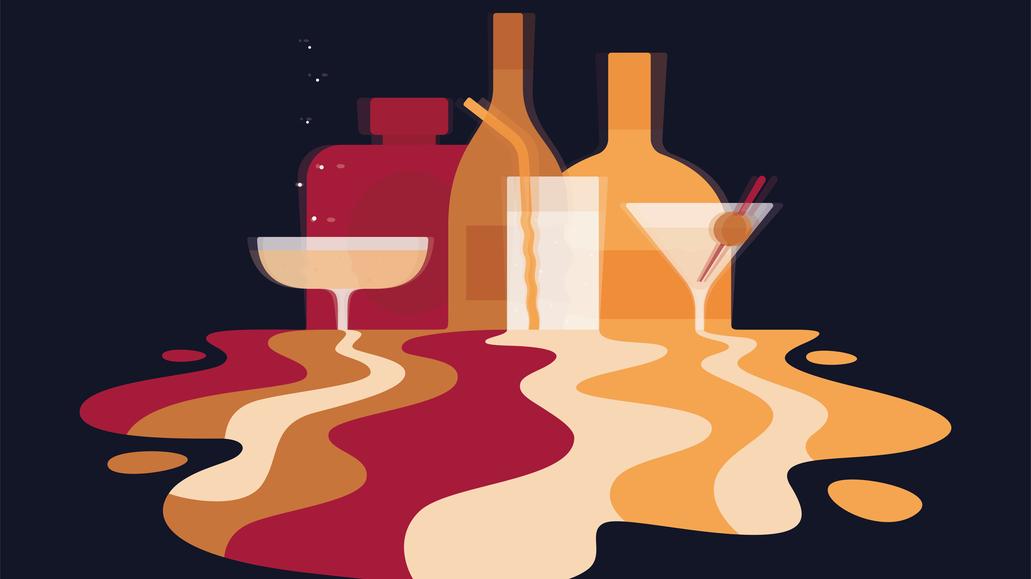
- Think about the sugar content in your mixed drinks. Choose options with fewer added sugars.
- Remember calories from alcohol still count toward your daily intake, so drink moderately.
- Stay hydrated and give your liver time to recover between drinks.
- Beware signs of fatty liver if you consume alcohol regularly; consult your healthcare provider.
Understanding these details can help you enjoy your beverage mindfully without myths clouding your gut feelings—or your metabolism.
References You Can Trust
If you want to dive deeper, sources like this scientific article provide solid insights into fermentation and alcohol metabolism.
To sum it up, alcohol doesn’t break down into sugar, but it still has a unique metabolic path that affects your body’s chemistry. Knowing this helps separate fact from fiction and makes your drink choices more informed (and perhaps a little wiser).
Does alcohol break down into sugar in the body?
No, alcohol breaks down into acetaldehyde and acetic acid, not sugar. Ethanol does not convert to sugar at any stage during metabolism.
Is alcohol metabolized similarly to sugar?
Alcohol and sugar both form acetyl-CoA, which enters the TCA cycle for energy production. However, alcohol does not turn into sugar; their metabolic paths converge later.
Can consumed sugar turn into alcohol in the human body?
Generally, sugar does not convert into alcohol in humans. This process happens in fermentation, not human metabolism.
Do alcoholic drinks contain sugar?
Some alcoholic drinks, like beer, have carbohydrates that break down into sugar. Many mixed drinks also contain added sugars.
How does alcohol metabolism affect the liver compared to sugar metabolism?
Alcohol metabolism increases NADH, leading to fatty acid buildup and potential liver damage. This effect is distinct from sugar metabolism despite some shared pathways.


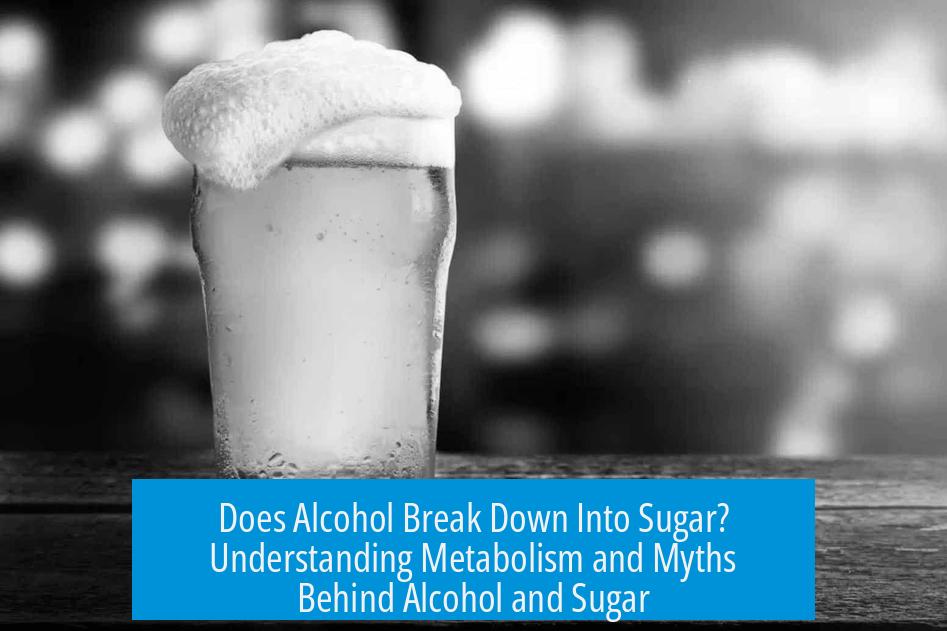
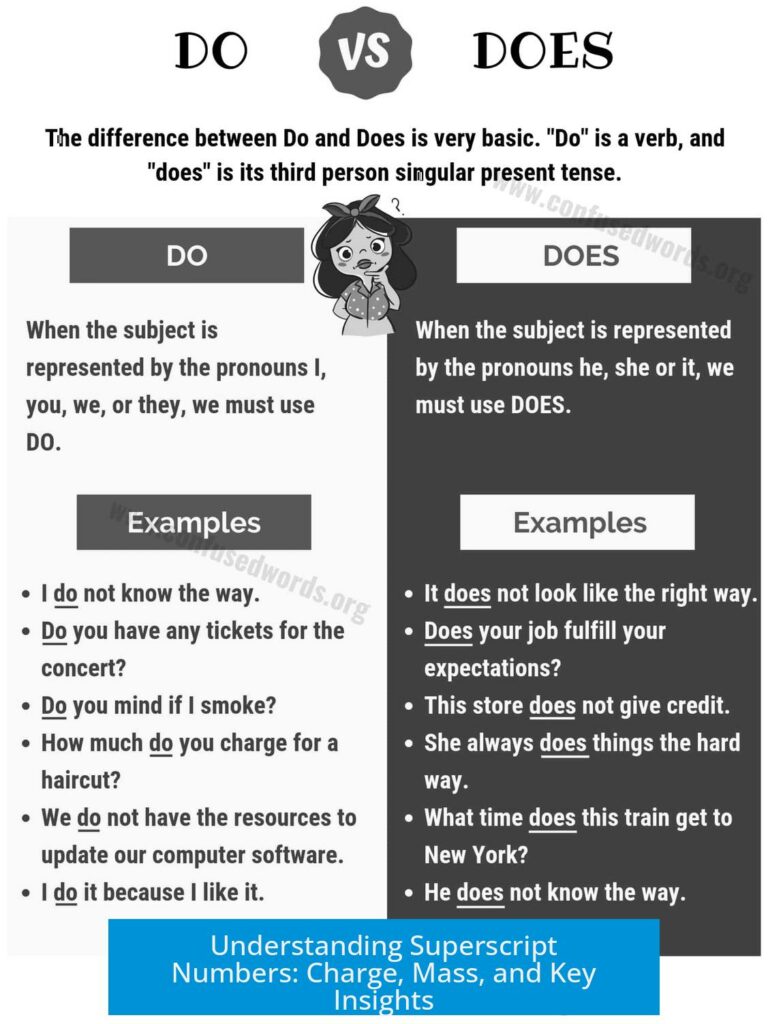
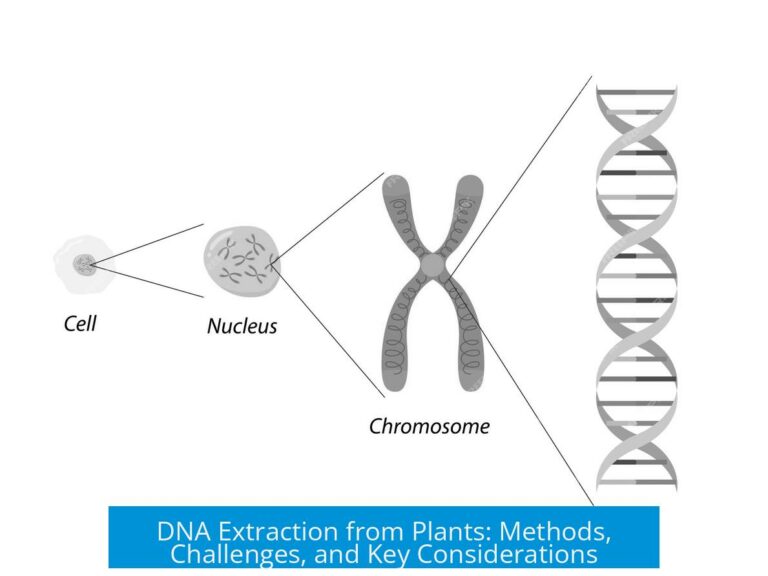
Leave a Comment